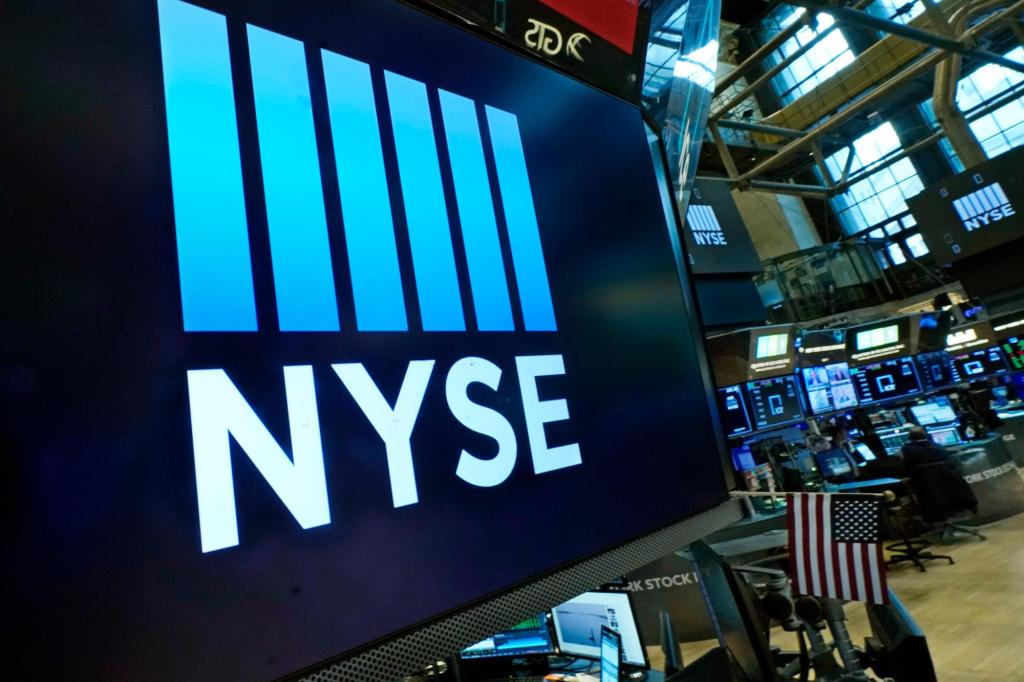
Asian shares trade mixed ahead of a key US jobs report – The Denver Post
Last Updated on September 1, 2023 by Admin
[ad_1]

By YURI KAGEYAMA (AP Business Writer)
TOKYO (AP) — Asian shares were trading mixed Friday as investors looked toward a United States jobs report being released later in the day.
Japan’s benchmark Nikkei 225 rose 0.6% in morning trading to 32,820.80. Australia’s S&P/ASX 200 slipped 0.4% to 7,278.30. South Korea’s Kospi was virtually unchanged, inching down less than 0.1% to 2,556.57. The Shanghai Composite added 0.4% to 3,131.93.
Trading was halted in Hong Kong because of an approaching typhoon. Schools and businesses were shut as an official warning was issued about Super Typhoon Saola.
Later Friday, the U.S. government will report employment data for August. The strong job market, along with consumer spending, has so far helped thwart a recession that analysts expected at some point in 2023. But they also made the Federal Reserve’s task of taming inflation more difficult by fueling wage and price increases.
On Wall Street, the S&P 500 gave up an early gain to close 0.2% lower, falling to 4,507.66 Thursday. The benchmark index ended August down 1.8%, though a recent four-day winning streak helped chip away at the severity of the monthly decline.
The Dow Jones Industrial Average fell 0.5% to 34,721.91, while the Nasdaq composite eked out a 0.1% gain to 14,034.97.
Market jitters over the possibility that the Federal Reserve might have to keep interest rates higher for longer — following reports showing the U.S. economy remains remarkably resilient — led to the market’s pullback in August after what had been a banner year.
This week, reports on job openings, consumer confidence and inflation stoked hopes on Wall Street that the Fed may hold rates steady at its next policy meeting in September.
That helped limit the market’s losses for August. The S&P 500, which soared 19.5% through July, remains 17.4% higher for the year, while the tech-heavy Nasdaq is up 34.1%. The Dow is up 4.8%.
“We’ve kind of entered this point of the year where economic data and earnings are mostly set, in terms of the market’s expectations,” said Michael Antonelli, market strategist at Baird. “But if we get cooler jobs data, cooler inflation data, if we get cooler spending data, that’s what brings rates down dramatically and that gooses stocks higher. That’s kind of what we saw this week.”
On Thursday, the government reported that a measure of inflation closely tracked by the Federal Reserve remained low in July. The latest update for personal consumption and expenditures, or the PCE report, is the latest sign that price increases are cooling.
The central bank has raised its main interest rate aggressively since 2022 to the highest level since 2001. The goal has been to rein inflation back to the Fed’s target of 2%. PCE measured 3.3% in July, matching economists expectations. That’s down from 7% a year ago.
The latest inflation data follows updates on jobs and consumer confidence this week that also support hopes for the Fed to pause interest rate hikes. The central bank held rates steady at its last meeting and investors are expecting rates to hold steady for the remainder of 2023, according to CME’s FedWatch tool.
The Fed has maintained that it is ready to keep raising interest rates if it has to, but will base its next moves on the latest economic data.
“The last hike they made potentially could be the last for the year,” said Chris Zaccarelli, chief investment officer for Independent Advisor Alliance. “As long as inflation remains controlled and contained, I think the Fed is done raising interest rates.”
Bond yields fell again Thursday. The yield on the 10-year Treasury slipped from 4.11% late Wednesday to 4.10%. The yield on the 2-year Treasury, which tracks expectations for the Fed, edged lower from 4.88% late Wednesday to 4.85%.
In energy trading, benchmark U.S. crude rose 10 cents to $83.73 a barrel. Brent crude, the international standard, added 12 cents to $86.95 a barrel.
In currency trading, the U.S. dollar edged down to 145.44 Japanese yen from 145.52 yen. The euro cost $1.0845, little changed from $1.0846.
___
AP Business Writers Damian J. Troise and Alex Veiga contributed to this report.
[ad_2]
Source link




